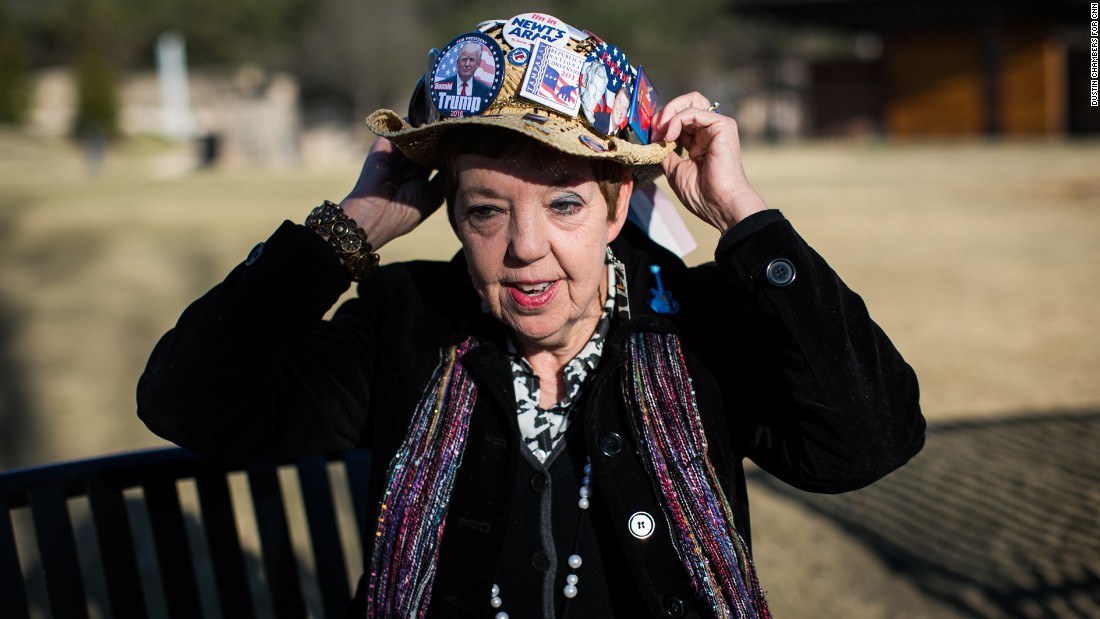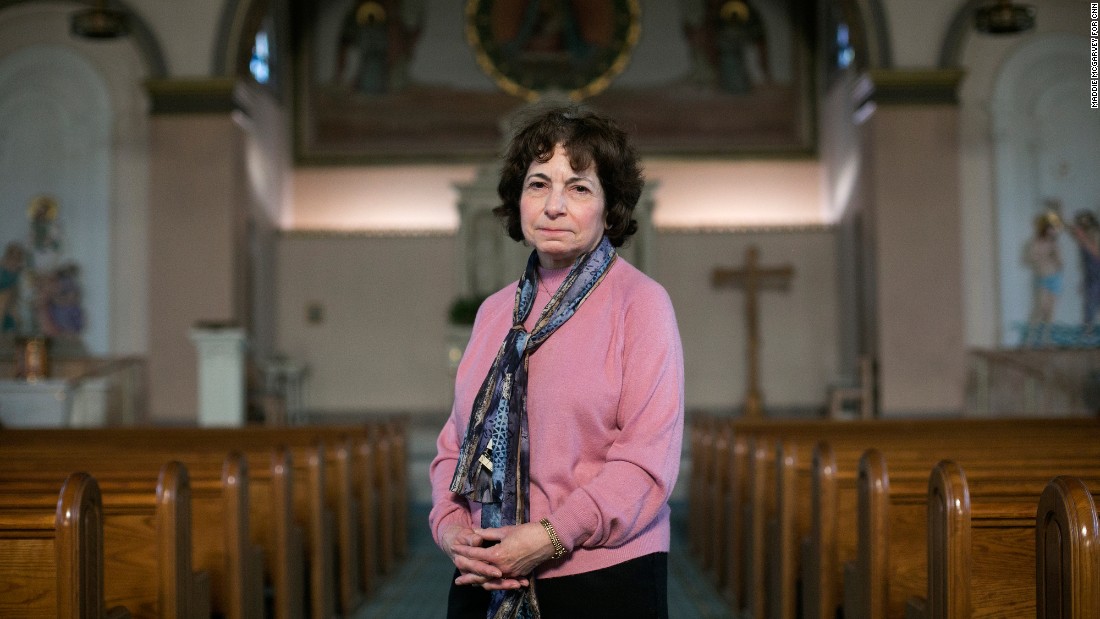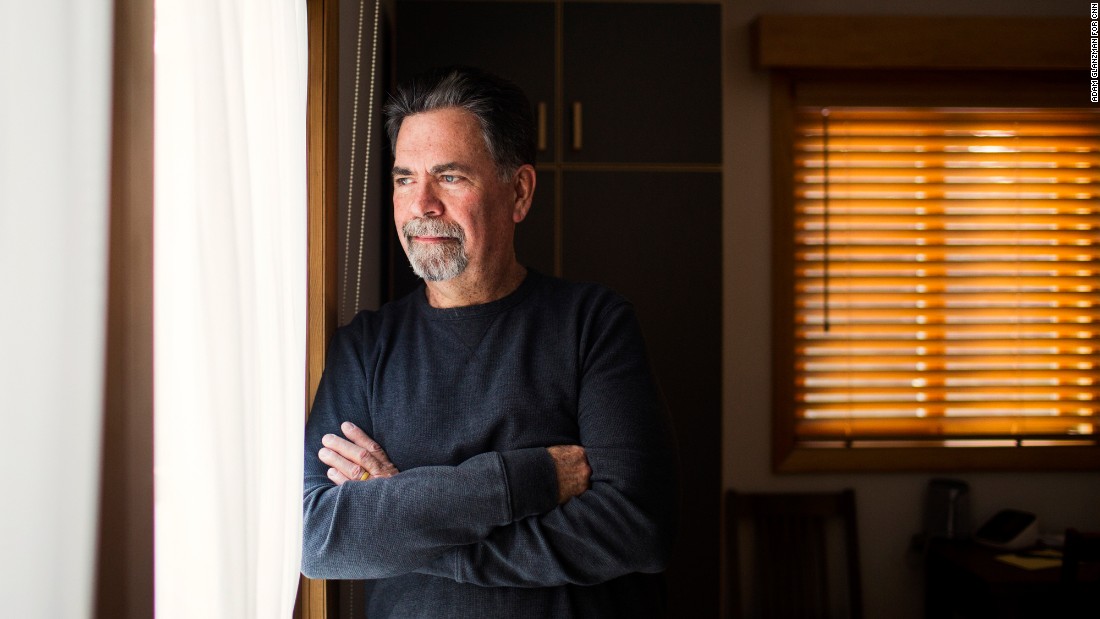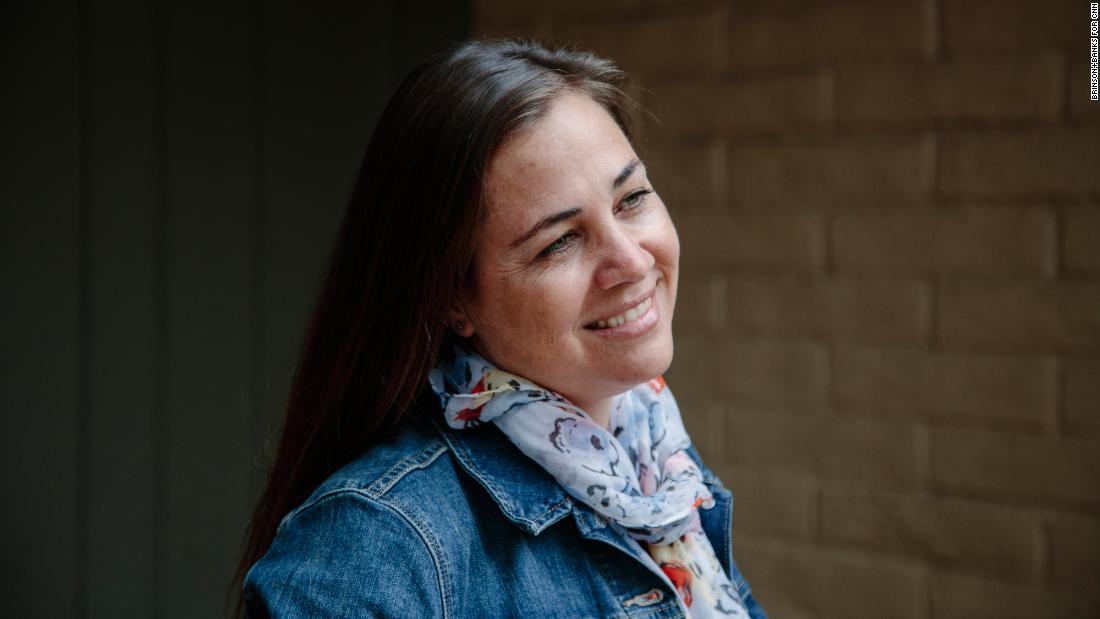(CNN) In the beginning, they didn't care for Donald Trump. "Trump's a buffoon," David Searles said before casting a vote for Marco Rubio in the New Hampshire primary. "He scares me," Rebecca Meyer said before settling on Ben Carson in South Carolina's primary.
"He's not presidential," Gail Francioli said after backing Ohio Gov. John Kasich in that state's primary.
Yet like nearly nine out of 10 Republicans nationwide, Searles, Meyer and Francioli supported Trump in the general election. And like the vast majority of Republicans, they support him still.
In fact, these one-time-skeptics are part of the bulwark that is bolstering a President whose first month in office roiled the nation.
Consider Wendy Housel of Summerville, South Carolina. She was so distraught by her party's nominee that she cried in the voting booth. She cast a ballot for Trump anyway, and prayed it was the right thing to do.
Now? "So far, I've liked what I've seen," Housel said.
While reporting on the presidential campaign for CNN's book, "Unprecedented: The Election That Changed Everything," I interviewed voters in disparate regions of America. I attended rallies for all the major candidates, as well as both parties' conventions. Perhaps not surprisingly, given the size of the GOP field, most Republicans told me they didn't initially back Trump. Even some people who voted for him in the primaries did so only because their first and, at times, second choices had dropped out.
Trump's provocative comments about women and minorities -- including assertions that Mexican immigrants were "rapists," that he could grab women's genitals with impunity and that African Americans had never been worse off than they were last year -- along with his misrepresentation of facts and tendency to boast gave Democrats hope that significant numbers of Republicans, particularly women, would cross party lines and vote for Hillary Clinton. They did not.
When it came time to vote, Republicans were as loyal to their party as Democrats were to theirs. And now, they are standing solidly behind Trump, even as his approval rating is the lowest of any new president in modern times. Trump's 40% approval rating is 21 points below average for a president finishing his first month in office, while his 87% approval rating among Republicans is second only to that of George W. Bush among all GOP presidents elected in the last 65 years, Gallup reported Friday.
Put another way, a greater percentage of Republicans support Trump than backed Ronald Reagan after his first four weeks in the Oval Office.
I called a number of Republicans I met along the campaign trail to find out what they think of Trump now. Some bemoaned his blustery style. None disputed his policies.
The reason is simple: They agree with him.
'A breath of fresh air'
"I'm ecstatic! It's a breath of fresh air," Judy Griffin exclaimed when I asked her about the nascent Trump presidency. "The country was going on a near-death experience collision. Political correctness was about to strangle us all."
A 66-year-old from Woodstock, Georgia, Griffin began the campaign season supporting Wisconsin Gov. Scott Walker. She was such a big fan that she went to Wisconsin in 2012 to help Walker defeat a recall campaign. When he dropped out of the presidential race months before the first votes were cast, Griffin switched her allegiance to Rubio, the young senator from Florida. When I met her at the Republican National Convention in Cleveland -- sporting a straw hat bedecked with GOP buttons dating back to Barry Goldwater -- Griffin was fully committed to Trump, if for no other reason than he was, by then, the nominee.
"The only right thing to do was get behind the guy who won the race," she said.
Although all the voters I contacted said they continued to support Trump, most volunteered they were wary about his flaws, particularly what they portrayed as impetuous behavior. Not Griffin. Where others see foibles, she sees assets.
"He's the perfect reality show star. He's now starring in his own reality show," she said. "At this point in history and in our country, with all the issues that we have to face, it may be time for non-convention to take the lead and take the bull by the horn and start wrestling some of these issues that are serious issues for our country."
Griffin, formerly the director of development for a Christian school, described herself as "very conservative" and "very pro-life." She said she wants Trump to take on ISIS because "you have to confront evil." She also wants him to rebuild the military, reduce the national debt and bring back jobs -- things she criticized former President Barack Obama for failing to do. She added that Trump could do more to improve race relations than did the first African-American president.
"I think we're a more divided country than we were eight years ago. Having an African-American in the White House, I don't think, did anything to improve our race relations," Griffin said. "When you go into the inner cities, people need jobs, the kids need hope....We're at a crossroads for needing someone that could take us down a new direction."
Indeed, Griffin was so excited about Trump that she flew to Washington for his inauguration. "I have a lot of hope for him," she said.
'I have a good feeling about him'
Gail Francioli sat by the window in Dewey's Coffee House reading a short book entitled, "Grieving with the Help of Your Catholic Faith." It was July of last year and the Republican convention was taking place a few miles away in downtown Cleveland. But her thoughts were elsewhere, as she struggled to heal after the death of her mother the previous August. She set the book down to talk to me.
"I have never missed an election," Francioli said. Her mother, the long-time secretary of the Cuyahoga County Republican Party, "was so excited when she heard the convention was coming to Cleveland," she noted.
Francioli, 66, retired when her job as a licensed practical nurse was eliminated -- a victim of the economy that Trump pledged to fix. Still, the soft-spoken Francioli had no kind words for the GOP nominee.
"Trump is not good for this country. He's not presidential," she said. "His character leaves a lot to be desired. The way he insults people, it makes me cry. The children! I'm embarrassed."
The only good thing about Trump, she said, was his running mate, Mike Pence.
"I'm praying for a miracle," Francioli said. "I'm praying that either Trump gets out" -- she paused -- "I'm praying for something."
Even as she prayed, Francioli said she knew she ultimately would vote for Trump. Clinton, she said, was "untrustworthy." And as an avowed opponent of abortion rights, flag burning, same-sex marriage and adoptions by same-sex couples, Francioli said she wanted a president who would populate the Supreme Court with conservatives.
"I don't care for Trump, but he's the lesser of two evils," she said firmly. His shortcomings: "He's not presidential. I don't like the way he speaks. There's no reason for him to insult people. I don't see any plans that could be implemented. I don't like his mannerisms."
And, in case there was a kernel of doubt about her sentiments: "I don't like the way he waves his hands."
Trump hasn't changed since that July day. But Francioli has.
"So, I voted for Trump," she said when I called her this month. "I didn't care for his personality, and he doesn't think before he speaks and he's kind of rash. But I'm glad that I did. I'm glad that he's come down on the refugee immigration stance. I know it's difficult, but we have to protect our country....
"I have a good feeling about him," she said. "He seems like he's going to be good."
As for her previous trepidations, Francioli said, "I got to like his policies and I was able to put his personality aside."
Indeed, Francioli offered a substantial list of subjects on which she agrees with Trump. "He's going to increase the military, going to protect this country, build a wall, border control, Obamacare," she said. "He's bringing jobs back." A regular participant in church-led marches outside an abortion clinic, she added that she expects Trump to place further restrictions on the procedure.
When I asked if there was anything she disliked about the man whose behavior used to bring her to tears, Francioli responded flatly: "Not that I can think of."
'I agree with many of the policies'
"Trump is definitely out," Dave Searles declared when I met him one year ago. He was wedged into a crowd, waiting to hear his candidate, Rubio, who had foundered during a debate the previous night.
"It's given me a little pause," said Searles, a software developer from Windham, New Hampshire.
But Searles wasn't happy with the alternatives. John Kasich was too moderate. Chris Christie and Jeb Bush didn't stand a chance of winning. Ted Cruz was "a calculating weasel."
He saved some of his harshest words for the billionaire from New York. "Trump's a buffoon," Searles declared. "He's offered not one single policy, unless you consider building a wall a policy. He's vulgar."
Two days later, Searles cast his vote for Rubio in New Hampshire's primary. Ten months and one day later, he voted for Trump.
"I kept hoping for someone a little more sane, a little more --," Searles left the sentence hanging during our recent conversation. "I was rather puzzled and dismayed at how Trump seemed to stay up at the top."
Despite his misgivings, he said that although "there was much I didn't like about him, there was far more I didn't like about Hillary Clinton."
Searles, 61, gives the President's performance mixed reviews. He said Trump should let go of peripheral concerns, such as the size of the crowd at his inauguration or how "The Apprentice" is doing in his absence. When it comes to issues, however, he gives Trump two thumbs' up.
"For the most part, I agree with many of the policies he's looking to do. That's certainly the upside," Searles said. "The downside is sometimes he can be rather petty. I wish he could just let things go and be a bigger person."
Searles said he supported Trump's decision -- knocked down by federal courts -- to restrict travel from seven predominately Muslim countries, as well as his pledge to build a wall along the Mexican border (though he doubts that the President will succeed in making Mexico foot the bill).
He also favors Trump's push to roll back regulations that Searles said have "stifled" businesses, including the software company that hasn't been stable enough to give him a raise in 10 years.
Internationally, Searles said he is optimistic that the US will "have a stronger presence on the world stage." He appreciates Trump's tough talk.
"I felt that the Obama administration was preoccupied with not offending people. As a result, I think some nations that normally would not try some things are seeing how much they can get away with," he said, pointing specifically to Iran. "Sometimes, you have to smack them across the jaw. I'm not talking about starting World War III. But at some point, you have to say enough's enough."
Searles said he thought Trump got off to a strong start on Inauguration Day, when he promised to take on the "American carnage" that he said had torn through the nation, leaving poverty, crime, drugs, gangs, shuttered factories and bad schools in its wake.
"I'm surprised how many people said it was dark," Searles said of Trump's inaugural address. On the contrary, he said he was heartened that the President put a spotlight on the problems of inner cities, which Searles said politicians in both parties have too long ignored.
Searles, an evangelical Christian, said he was pleased that Trump nominated conservative Judge Neil Gorsuch to replace the late Supreme Court Justice Antonin Scalia, who was a leader among conservative jurists. In a position not frequently taken by political partisans, Searles said that if a more liberal justice departs, Trump should nominate someone in that person's image. "Stacking the deck would just produce more conflict," he said.
"Trump is in this unique position because he's somewhat unpredictable in terms of how he's going to govern," Searles said. "He's been a Democrat in the past. He's had some liberal views in the past. Even now, he has some conservative views and some liberal views. He's really that third-party candidate that just ran under the Republican banner."
'I'd do things differently'
Even when she cast her vote for Trump, Rebecca Meyer was not wholly convinced.
A veteran of the California National Guard and wife of a Marine Corps aviator, Meyer, 39, always has voted Republican. "But I was very concerned as a woman about some of the rhetoric," she told me recently. "I had a really hard time with some of the things I was hearing from Donald Trump." The "Access Hollywood" tape, in which Trump bragged about sexually assaulting women, was "jarring," she said.
Still, Meyer said she was reluctant to vote for Clinton given the FBI investigation into her use of a private email server as secretary of state and what Meyer feared would be a "pay to play" administration (a charge levied by Trump). Furthermore, she was disturbed by Clinton's response to the 2012 attack on the US mission in Benghazi, Libya, which left the ambassador and three other Americans dead.
"They had equally egregious statements or comments that could be given weight depending on your morals," Meyer said of both major-party nominees.
In the end, Meyer returned to her conservative, anti-abortion roots. But it was a long journey.
In the weeks leading up to the South Carolina primary last February, Meyer tried to meet every candidate she could. She took selfies with several of them, asked questions when possible and blogged about the race for a Marine family website called USMCLife.com.
When we first met, at a Columbia town hall featuring Bush, Meyer was wavering among several Republican candidates, including Kasich, Rubio and the former Florida governor. She said she initially supported Carson, the retired neurosurgeon who now runs the Department of Housing and Urban Development, but decided she didn't want to "throw away" her vote on someone who couldn't win. An online test concluded her views lined up with those of Cruz, but Meyer said she found the Texas senator to be "disingenuous."
During the town hall, Meyer asked Bush how he would motivate the military and improve services for veterans. His answer, replete with specifics, pleased her.
The next night, I ran into Meyer at a large Trump rally in the cavernous North Charleston Coliseum. That's when she said he scared her. Nonetheless, she hoped to get some face time with him.
"I want to ask if his edginess and brassiness will make it hard to make moral decisions," she told me. She didn't get an answer, but she did manage to grab an autograph for her brother.




No comments:
Post a Comment